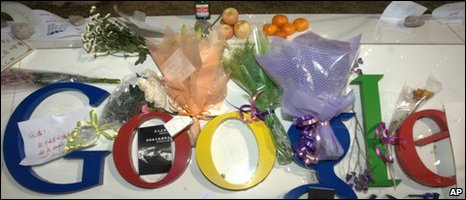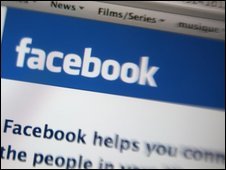As Google considers withdrawing from China, the BBC looks at the highs and lows of internet access and freedom in the most populous country in the world. 1 May 2001: US and Chinese hackers engage in an internet war as the diplomatic row about the
crashed US spy plane
rumbles on. 7 November 2002: Activist Jiang Lijun arrested following an investigation that used information supplied by Yahoo. 14 June 2005: Microsoft agrees to censor its
blog writing tool
, called Spaces, on MSN China 7 September 2005: Net giant Yahoo is accused of supplying information to Chinese authorities which led to the
jailing of journalist
Shi Tao. 25 January 2006: Google.cn is set up, and censored by the search giant in line with official rules on what people can do and see online in China. 9 February 2006: Yahoo is accused by Reporters Without Borders of
aiding the Chinese authorities
by releasing data that led to the arrest of net activist Li Zhi.
15 February 2006: Yahoo, Microsoft, Cisco and Google are criticised in a
US congressional hearing
for giving in to pressure from China to censor their web. 16 November 2006: The first part of the Great Firewall of China - also known as the Golden Shield Project - goes into service. This uses several means to make it difficult to reach sites the Chinese government has deemed illegal. April 2007: Chinese version of MySpace launches, but lacks discussion forums devoted to politics and religion. It also has a filtering system that stops the posting of content about Taiwan's independence, Falun Gong, the Dalai Lama and other "inappropriate" topics. June 2007: Yahoo issues a statement saying it was "dismayed" that Chinese citizens have been imprisoned for expressing their political views on the internet. August 2007: MSN and Yahoo sign a "self-disciplinary pledge" that will limit what users can say on their blogging sites. Both decline to implement one element of the pledge requiring them to collect the real names of users. November 2007: Yahoo settles a lawsuit brought by families of bloggers convicted by information the internet firm handed over to the Chinese authorities. 25 March 2008:
BBC News website
unblocked in China.
1 April 2008: In the run-up to the Olympic games, China unblocks websites such as Wikipedia, Blogger and YouTube. However, many thousands of others remain inaccessible. 16 October 2008: China introduces laws which say anyone using an internet cafe must have their picture taken and show ID before they can go online. 24 March 2009: Chinese government
blocks access
to YouTube for carrying videos of soldiers beating monks and other Tibetans. 9 June 2009: China introduces the
Green Dam net filtering software
that will be fitted to every new PC sold in the country from July 2009. The software was created to stop people looking at "offensive" content such as pornography and violent imagery. The Chinese authorities say use of the software is not "mandatory". 10 June 2009: On the
20th anniversary of the Tiananmen Square protests
, micro-blogging service Twitter, photo site Flickr and YouTube are blocked to stop people discussing or seeing footage of events in 1989. July 2009: During riots, China
blocks keyword searches for "Urumqi"
- the city where the unrest was unfolding. Also blocked were Twitter, Facebook and local alternatives. 13 January 2010: Google announces it is considering
withdrawing from China
following a cyber attack on e-mail accounts of human rights activists. 21 January 2010: The US calls on Beijing
to investigate
the cyber attacks on Google, saying China has tightened censorship. 22 January 2010: China denounces
US criticism
of its internet controls, saying it could harm ties between the two countries. 22 March 2010: Google announces it will
redirect its mainland China customers
to an uncensored Hong Kong-based site.
|

~RS~q~RS~~RS~z~RS~53~RS~)






Bookmark with:
What are these?